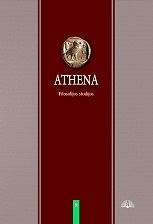Vaizdinio-laiko samprata Gilles’io Deleuze’o kino filosofijoje
The Notion of Time-Image in Gilles Deleuze’s Film Philosophy
Author(s): Audronė ŽukauskaitėSubject(s): Philosophy
Published by: Lietuvos kultūros tyrimų
Keywords: the movement-image; the time-image; the crystal-image; the powers of the false; modern political cinema; minor cinema
Summary/Abstract: The essay analyzes the notion of time-image in Gilles Deleuze’s film philosophy. Deleuze asserts that the time-image creates a new cinematographic regime which is also called a crystalline description. The regime of movement-image, which is sometimes described as organic, presupposes that the depicted object exists independently of the camera; by contrast, in the regime of time-image or crystal-image, the cinematographic narrative itself creates and recreates its object, invents new narratives to replace the old ones. The organic regime is still dependent on the notion of truth in a sense that it presupposes the correspondence between the thing and the image; in the crystalline regime, the imaginary and the real become interchangeable. Thus the image in the crystalline regime is indefinite and indecidable; moreover, it is constantly changing in time. This change in time compromises the notion of truth and unleashes what Deleuze calls „the powers of the false“. The essay seeks to reveal how these powers of the false together with the multiplicity of time initiate the new forms of modern political cinema. The new forms of cinematographic narrative created by the time-image enable to replace the given reality with the new dimensions of becoming and virtuality. Thus the time-image, besides its formal characteristics, acquires an explicit political function.
Journal: Athena: filosofijos studijos
- Issue Year: 2012
- Issue No: 8
- Page Range: 227-243
- Page Count: 17
- Language: Lithuanian

